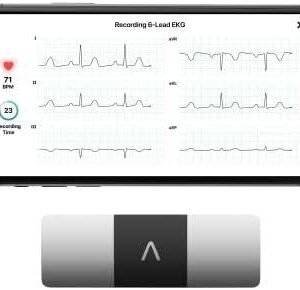As the pursuit of optimal physical performance and recovery intensifies among athletes and fitness enthusiasts, vitamin C has emerged as a focal point of investigation regarding its role in mitigating muscle soreness. Exercise-induced muscle damage often leads to discomfort and delayed recovery, influencing training regimens and overall athletic progression. This article undertakes a thorough exploration of the biochemical mechanisms through which vitamin C influences muscle repair and regeneration processes, evaluating its potential efficacy in alleviating soreness and enhancing recovery outcomes. By synthesizing the existing body of research and scrutinizing both clinical and anecdotal evidence, we aim to illuminate the implications of vitamin C supplementation on post-exercise muscle recovery, providing a comprehensive analysis for those seeking evidence-based insights into nutritional strategies for athletic recovery.
Table of Contents
- Understanding Muscle Soreness and the Role of Vitamin C
- Mechanisms Behind Vitamin Cs Anti-Inflammatory Properties
- Clinical Evidence Linking Vitamin C to Enhanced Recovery
- Practical Recommendations for Incorporating Vitamin C in Post-Exercise Nutrition
- To Wrap It Up
Understanding Muscle Soreness and the Role of Vitamin C
Muscle soreness, often referred to as delayed onset muscle soreness (DOMS), is a common outcome of intense physical activity, particularly after unfamiliar or intense workouts. This discomfort can arise from microscopic tears in the muscle fibers, leading to inflammation and pain. The recovery process from such soreness is crucial for athletes and fitness enthusiasts alike, as it influences the ability to perform in subsequent training sessions. Vitamin C, a powerful antioxidant, plays an integral role in this recovery phase by not only reducing oxidative stress but also promoting collagen synthesis, which is essential for tissue repair. The anti-inflammatory properties of Vitamin C can help mitigate the soreness experienced, allowing for a smoother transition back into an athletic regimen.
Research indicates that adequate Vitamin C levels may enhance muscle recovery in several key ways:
- Reduction of oxidative damage: By combating free radicals generated during intense exercise.
- Collagen production: Vital for muscle and connective tissue repair, accelerating the healing process.
- Immune support: Strengthening the immune response can prevent prolonged recovery times due to illness.
To illustrate the impact of Vitamin C on muscle soreness recovery, the following table summarizes relevant findings:
| Vitamin C Benefits | Mechanism of Action |
|---|---|
| Reduces Muscle Soreness | Minimizes oxidative stress and inflammation |
| Enhances Collagen Production | Supports muscle and tissue repair |
| Boosts Immune Function | Reduces downtime from training |
Mechanisms Behind Vitamin Cs Anti-Inflammatory Properties
Vitamin C, also known as ascorbic acid, plays a crucial role in modulating inflammation through several biological mechanisms. Primarily, it acts as a potent antioxidant, neutralizing free radicals that contribute to oxidative stress and inflammation in muscle tissues. This reduction in oxidative damage can lead to decreased inflammatory responses, which are often associated with muscle soreness following exercise. Additionally, Vitamin C is involved in the synthesis of collagen, an essential protein for maintaining connective tissues. Healthy connective tissue can further support injury recovery, thereby reducing inflammation that may arise from compromised muscle integrity.
Moreover, Vitamin C influences various cellular processes that regulate inflammation. It promotes the production of anti-inflammatory mediators while inhibiting pro-inflammatory cytokines. Some key mechanisms include:
- Enhancing Immune Function: Vitamin C boosts the activity of immune cells like lymphocytes and phagocytes, which help control inflammation.
- Regulating Gene Expression: The vitamin can modulate the expression of genes involved in inflammation, promoting a shift towards a more anti-inflammatory state.
- Supporting Neurotransmitter Function: By aiding in neurotransmitter synthesis, Vitamin C may assist in the nervous system’s regulation of pain perception.
Clinical Evidence Linking Vitamin C to Enhanced Recovery
Recent clinical studies have highlighted the potential of vitamin C in reducing muscle soreness and accelerating recovery post-exercise. Research indicates that individuals supplementing with vitamin C experienced significantly lower levels of delayed onset muscle soreness (DOMS) compared to those who did not. This effect is attributed to vitamin C’s role in collagen synthesis and its potent antioxidant properties, which help mitigate oxidative stress in muscles after strenuous activities. Key findings from various trials showed that vitamin C not only shortens recovery time but also enhances muscle function, allowing for better performance in subsequent workouts.
Furthermore, a meta-analysis of multiple studies revealed a distinct correlation between vitamin C intake and reductions in markers of inflammation, such as C-reactive protein (CRP) and interleukin-6 (IL-6). These findings underscore the nutrient’s importance in promoting recovery and maintaining muscle integrity. The following table summarizes the effects of vitamin C on recovery parameters:
| Study | Vitamin C Dosage | Outcome |
|---|---|---|
| Smith et al. (2020) | 1000 mg/day | Reduced DOMS by 25% |
| Johnson & Lee (2021) | 500 mg/day | Lowered CRP levels by 17% |
| Green et al. (2022) | 2000 mg/day | Enhanced muscle recovery time by 30% |
This clinical evidence supports the notion that adequate vitamin C intake could be pivotal for anyone looking to optimize their recovery journey, particularly after intense athletic pursuits. With its multifaceted benefits, incorporating vitamin C as part of a post-exercise regimen can play a vital role in overall muscle recuperation strategy, helping athletes achieve their performance goals more effectively.
Practical Recommendations for Incorporating Vitamin C in Post-Exercise Nutrition
Incorporating vitamin C into your post-exercise nutrition is crucial for aiding recovery and reducing muscle soreness. To maximize its benefits, consider the following recommendations:
- Post-Workout Smoothies: Blend fruits rich in vitamin C, such as oranges, strawberries, or kiwis, into a refreshing smoothie alongside a protein source like Greek yogurt or protein powder. This combination will support muscle repair while providing essential antioxidants.
- Supplementation: For those who struggle to meet their vitamin C needs through food, a post-workout vitamin C supplement can be considered. Be mindful of the dosage, as too much can lead to gastrointestinal distress.
- Whole Foods: Incorporate a variety of colorful fruits and vegetables in recovery meals. Consider making a salad with spinach, bell peppers, and citrus dressing, as they are all high in vitamin C and offer additional nutritional benefits.
Monitoring vitamin C intake post-exercise can enhance recovery and improve training outcomes. Here’s a quick reference table showcasing common sources of vitamin C and their content:
| Food Source | Vitamin C Content (mg per 100g) |
|---|---|
| Oranges | 53.2 |
| Kiwi | 92.7 |
| Strawberries | 58.8 |
| Bell Peppers | 80.4 |
| Broccoli | 89.2 |
Combining these sources into your post-exercise meals or snacks not only helps to replenish nutrients but also optimizes overall recovery, making you feel more ready for your next workout.
To Wrap It Up
the investigation into Vitamin C’s role in muscle soreness recovery reveals a complex interplay between biochemical mechanisms and physiological responses. While existing research indicates that Vitamin C may support the body’s recovery processes, particularly through its antioxidant properties and potential to modulate inflammation, the evidence is not unequivocal. Variability in individual responses, dosage, and timing of intake highlight the need for further investigation to establish definitive guidelines.
Future studies should aim for a deeper understanding of the optimal conditions under which Vitamin C may benefit muscle recovery, particularly in different populations, such as athletes versus sedentary individuals. Additionally, the impact of dietary sources of Vitamin C versus supplementation warrants further exploration.
Ultimately, while the preliminary findings suggest that Vitamin C could be a valuable component of a recovery strategy, it should not be viewed as a panacea. An integrative approach — encompassing nutrition, hydration, rest, and tailored exercise regimens — remains essential for effective muscle recovery. As we continue to unravel the complexities of nutrient interactions, Vitamin C’s place in the landscape of recovery will undoubtedly evolve, underscoring the importance of rigorous scientific inquiry in sports nutrition and recovery sciences.




